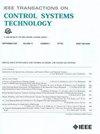观察者中的模型有效性:何时增加模型的复杂性?
IF 3.9
2区 计算机科学
Q1 AUTOMATION & CONTROL SYSTEMS
引用次数: 0
摘要
模型的有效性是自动驾驶汽车准确、安全运行的关键。在不同的计划和控制车辆框架中使用无效的车辆模型会危及车辆的稳定性,从而危及车辆的安全。在这项工作中,我们分析了文献中使用的几种流行的车辆模型相对于真实车辆的有效性,并证明了在特定的横向加速度点之外会遇到严重的准确性问题。我们设置了一个明确的横向加速度域,其中使用的模型是车辆行为的准确表示。然后,我们针对使用学习方法来模拟车辆行为的必要性。研究了模型有效性对状态观测器的影响。将基于模型的观测器与基于学习的观测器的性能进行了比较。总的来说,这项工作强调了车辆模型的有效性,并提出了清晰的操作领域,其中模型可以安全地使用。本文章由计算机程序翻译,如有差异,请以英文原文为准。
Model Validity in Observers: When to Increase the Complexity of Your Model?
Model validity is key to the accurate and safe behavior of autonomous vehicles. Using invalid vehicle models in different plan and control vehicle frameworks puts the stability of the vehicle and, thus, its safety at stake. In this work, we analyze the validity of several popular vehicle models used in the literature with respect to a real vehicle and we prove that serious accuracy issues are encountered beyond a specific lateral acceleration point. We set a clear lateral acceleration domain, in which the used models are an accurate representation of the behavior of the vehicle. We then target the necessity of using learned methods to model the vehicle’s behavior. The effects of model validity on state observers are investigated. The performance of model-based observers is compared to learning-based ones. Overall, this work emphasizes the validity of vehicle models and presents clear operational domains in which models could be used safely.
求助全文
通过发布文献求助,成功后即可免费获取论文全文。
去求助
来源期刊

IEEE Transactions on Control Systems Technology
工程技术-工程:电子与电气
CiteScore
10.70
自引率
2.10%
发文量
218
审稿时长
6.7 months
期刊介绍:
The IEEE Transactions on Control Systems Technology publishes high quality technical papers on technological advances in control engineering. The word technology is from the Greek technologia. The modern meaning is a scientific method to achieve a practical purpose. Control Systems Technology includes all aspects of control engineering needed to implement practical control systems, from analysis and design, through simulation and hardware. A primary purpose of the IEEE Transactions on Control Systems Technology is to have an archival publication which will bridge the gap between theory and practice. Papers are published in the IEEE Transactions on Control System Technology which disclose significant new knowledge, exploratory developments, or practical applications in all aspects of technology needed to implement control systems, from analysis and design through simulation, and hardware.
 求助内容:
求助内容: 应助结果提醒方式:
应助结果提醒方式:


